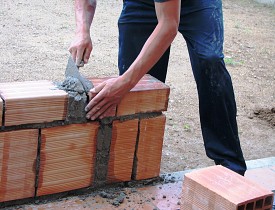Household Skin Irritants
 The skin is the largest human organ, and it does a pretty good job of protecting us from infections, damage, dehydration and overheating. However, we forget often that it is also a fairly sensitive set of living cells, and we expose it to chemicals and other irritants.
The skin is the largest human organ, and it does a pretty good job of protecting us from infections, damage, dehydration and overheating. However, we forget often that it is also a fairly sensitive set of living cells, and we expose it to chemicals and other irritants.
Skin can exhibit allergic reactions to a wide range of standard household products used for cleaning or home improvement. Such allergies may also develop over time after repeated exposure to the substance. Here are a few common culprits:
Cleaning Can Be Irritating
Cleaning products, particularly cleaning solvents, cause contact dermatitis reactions. This means the skin reacts to the material, but the reaction is not technically caused by allergies. However, resistance to household irritants can wear down over time if you expose skin to a lot of these products.
Soaps, detergents, fabric softeners, and drain cleaners can all contain harsh chemicals that irritate the skin and cause red, dry, cracked skin, mild swelling and blisters.
Solutions include: wearing protective gloves while cleaning, substituting non-toxic cleansers and hiring a maid service if the problem is out of control.
Home Improvement Can Be Irritating
DIY home improvement projects can also expose you to skin irritants, including turpentine, paint thinners, fiberglass, cement residue and mold. Most knowledgeable weekend warriors wear gloves and avoid direct skin contact with paint thinner and other chemicals. Likewise, one bare-armed trip through the attic will convince most people to always wear long sleeves, gloves and goggles when working with fiberglass insulation, with all those itchy, irritating fibers.
However, many people don’t realize the dangers of cement residue. The Centers for Disease Control attributes at least 25 percent of all work-related skin problems to Portland cement. Working with cement, concrete and related products such as grout, stucco and mortar can cause redness, dry skin, itching, burning, rashes and blisters. Fresh mortar and other products can even cause chemical burns.
Moreover, irritating cement particles can linger on your car or home upholstery and even other people’s clothes if they are washed with clothes worn while working with cement.
The CDC offers these tips for working with cement:
• Wear long sleeves, long pants and gloves, and tape over any potential gaps.
• Change your clothes before driving or sitting on upholstered seats, and wash work clothes separately.
• Wash with a pH-neutral soap (which combats the strong base materials in cement).
• Thoroughly wash hands with soap before and after using gloves.
• Remove wet cement quickly from clothing and skin.
A wide variety of everyday products, cleaning solvents and remodeling materials can cause skin irritation. Keep in mind that gardens host a range of other irritants, including plants, fertilizers and pesticides.
If the irritation is mild, avoid using the product again. If the skin is red and swollen or blistered, you might need to see a doctor. If you have regular skin irritation you can’t diagnose, see a dermatologist for an allergy test.
Updated May 14, 2018.
Looking for a Pro? Call us (866) 441-6648

Cleaning Average Costs
Cleaning Services Experiences

Paving My Driveway Was An Easy And Pleasant Experience

Seamless Extension Of Concrete Patio And Poolside Retaining Wall



